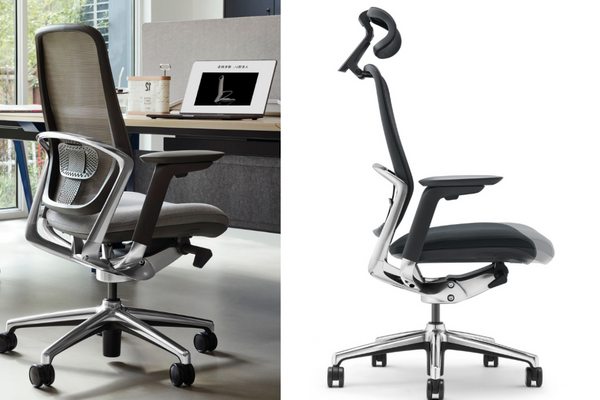Office Chairs | The Unsung Heroes

Introduction
In the modern world, where remote work and long hours at the office are increasingly common, the office chair has become more than just a piece of furniture.
It's an essential tool that can significantly impact our health, comfort, and productivity.
As we delve into the fascinating world of office chairs, we'll explore their history, the science behind ergonomic design, and the latest trends in the industry.
The Evolution of Office Chairs
Office chairs have come a long way since their humble beginnings.
While early office chairs were basic wooden or metal mechanisms, today's designs are the result of years of innovation and research.
The first significant jump in office chair design was the introduction of the swivel chair in the early 19th century.
This allowed for easy movement and accessibility within the workspace, and it laid the foundation for the modern office chair.
Ergonomics: The Science of Comfort
One of the key advancements in office chair design has been the integration of ergonomic principles.
Ergonomics is the science of designing products and systems to optimize human well-being and overall performance.
When it comes to office chairs, ergonomics is all about creating chairs that provide maximum comfort and support while reducing the risk of injury or discomfort.
Key ergonomic features to look for in an office chair include:
Adjustable Height
The ability to customize the chair's height ensures that your feet are flat on the floor and your knees are at a 90-degree angle.
Lumbar Support
Adequate lumbar support helps maintain the natural curve of your spine and reduces the risk of lower back pain.
Seat Depth and Tilt
Adjustable seat depth and tilt allow you to position yourself correctly in the chair, reducing pressure on your thighs and ensuring optimal blood circulation.
Armrests
Adjustable armrests help prevent strain on your shoulders and neck by allowing you to maintain a natural arm position while typing or working.
Material
High-quality, breathable materials are essential to prevent discomfort from prolonged sitting.
Trends in Office Chair Design
As technology advances and people's work habits change, office chair design is constantly evolving to meet the demands of the modern workplace.
Some recent trends include:
Sustainable Materials
As environmental concerns grow, many manufacturers are opting for sustainable materials like recycled plastics and responsibly sourced wood in their chair designs.
Smart Chairs
Some office chairs are now equipped with sensors and apps to monitor your posture and remind you to take breaks.
Sit-Stand Chairs
These innovative chairs allow you to shift between sitting and standing positions, promoting better blood circulation and reducing the health risks associated with prolonged sitting.
Aesthetics
Chairs are now available in a wide range of styles and colors to match various office aesthetics and individual preferences.
Conclusion
Office chairs might seem like an afterthought, but they play a crucial role in our daily work lives.
The evolution of office chairs, with a strong focus on ergonomics, has led to chairs that are more comfortable and supportive than ever before.
As we move forward, we can expect even more innovation in office chair design, with a growing emphasis on sustainability and technology integration.
When choosing an office chair, it's essential to consider your specific needs and preferences.
Investing in a high-quality, ergonomically designed chair can make a significant difference in your work comfort, productivity, and overall well-being.
So, next time you're at your desk, take a moment to appreciate the unsung hero of your workspace - your trusty office chair.
